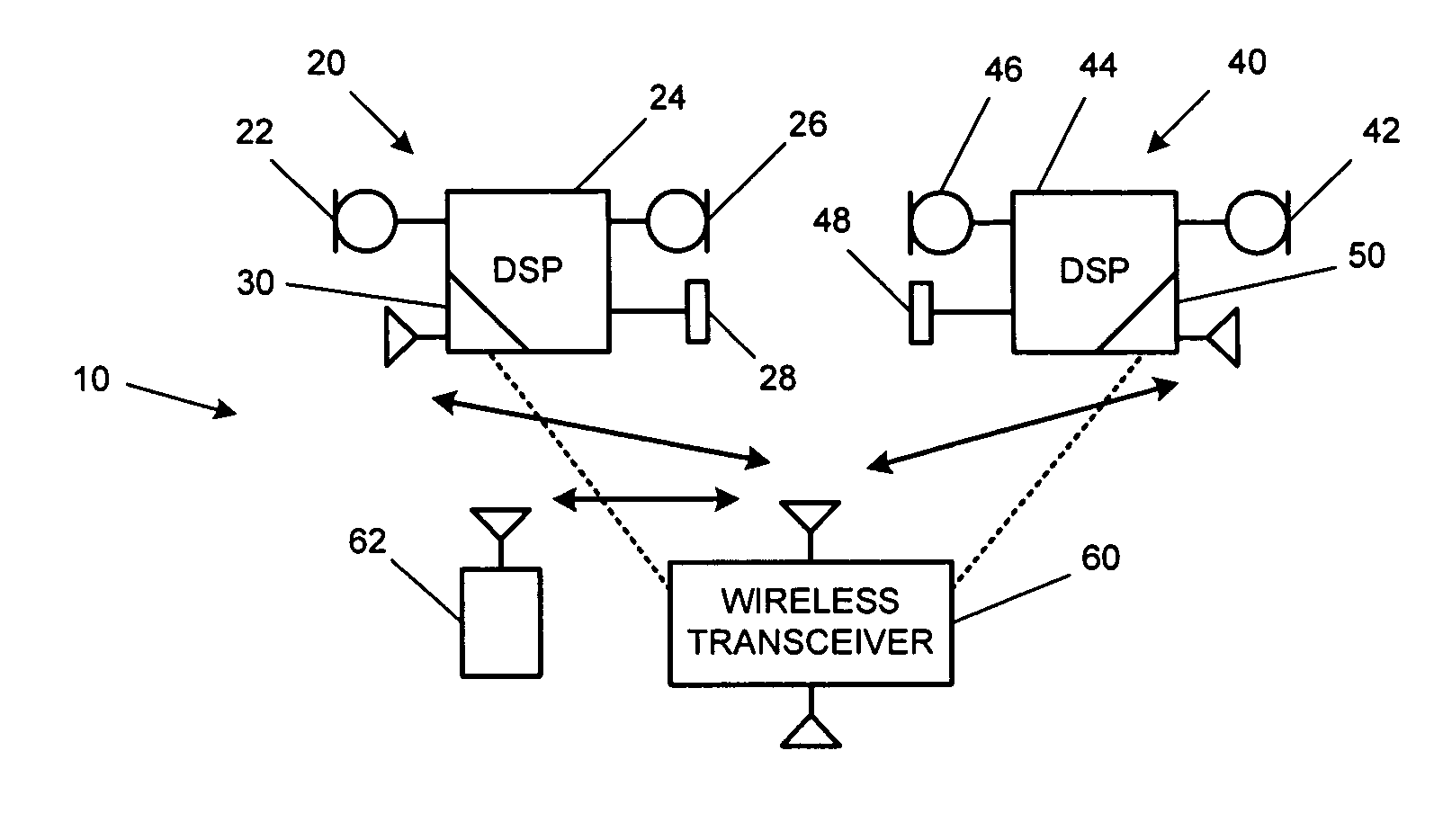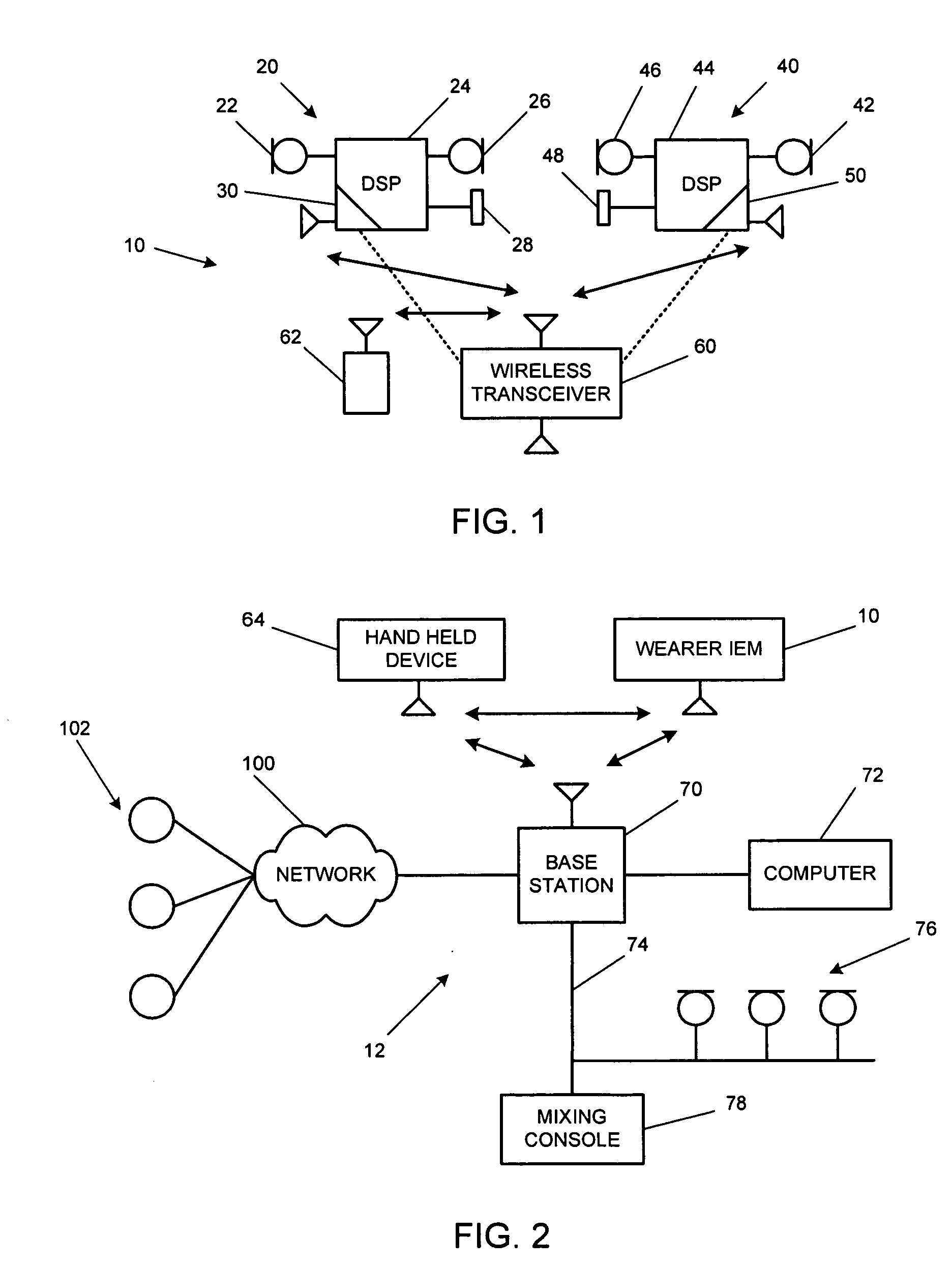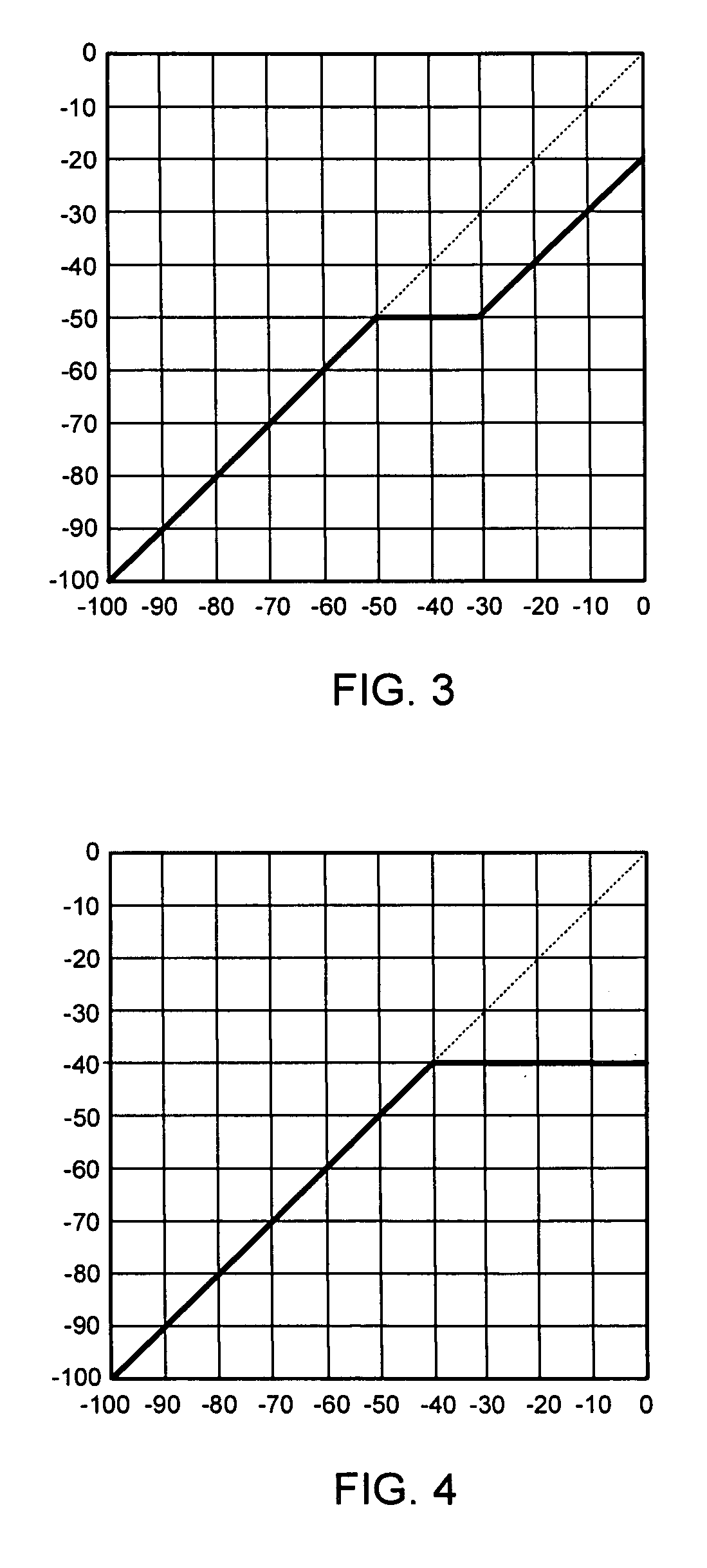In-ear monitoring system and method
a monitoring system and in-ear technology, applied in the field of hearing instruments, can solve the problems of limiting the wearer's ability to control the wearer's own preferred sound mix, limiting the wearer's ability to discern acoustic changes, etc., and achieve the effect of minimizing outside interferen
- Summary
- Abstract
- Description
- Claims
- Application Information
AI Technical Summary
Benefits of technology
Problems solved by technology
Method used
Image
Examples
Embodiment Construction
[0018]FIG. 1 is a block diagram of an in-ear monitoring component package 10 for a wearer, such as a musician or entertainment performer. The component package 10 comprises first and second in-ear monitors 20 and 40 and a wireless transceiver 60 that is associated with the wearer. The first in-ear assembly 20 comprises an outside microphone 22, a DSP device 24, an occlusion microphone 26, a transducer 28, and a communication subsystem 30. The outside microphone 22 receives sounds from the ambient acoustic environment external to the wearer and converts the sounds into corresponding electrical signals that are, in turn, provided to the DSP device 24.
[0019] The occlusion effect is the amplification of the wearer's own biologic sounds and voice within the ear canal. The occlusion microphone 26 is thus inside the ear canal to receive this unwanted signal created by the occlusion effect. The occlusion microphone 26 receives sounds from the wearer's inner ear and converts the sounds into...
PUM
 Login to View More
Login to View More Abstract
Description
Claims
Application Information
 Login to View More
Login to View More - R&D
- Intellectual Property
- Life Sciences
- Materials
- Tech Scout
- Unparalleled Data Quality
- Higher Quality Content
- 60% Fewer Hallucinations
Browse by: Latest US Patents, China's latest patents, Technical Efficacy Thesaurus, Application Domain, Technology Topic, Popular Technical Reports.
© 2025 PatSnap. All rights reserved.Legal|Privacy policy|Modern Slavery Act Transparency Statement|Sitemap|About US| Contact US: help@patsnap.com



